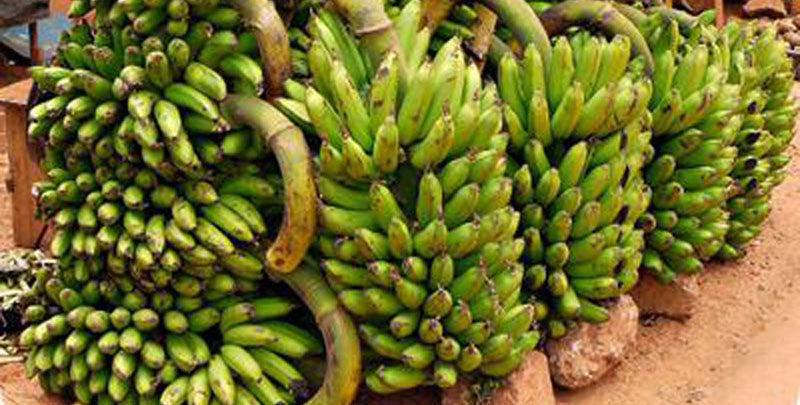and weakening of the Uganda Shilling on the other.
The Uganda Bureau of Statistics (UBOS) revealed that annual headline inflation jumped to 7.2 percent compared to the same level a year ago.
Analysing the underlying causes of the current trends in prices which have eroded the standards of living of most ordinary Ugandans, experts say the unfavourable trends have their roots in systemic weaknesses particularly those relating to supply of food.
UBOS said: [the rise in inflation] is largely attributed to the Annual Food Crops Inflation that increased to 10.2 percent for the year ending September 2015 compared to the 1.8 percent that was registered during the year ended August 2015.”
In Kampala, the price of a bunch of Matooke shot to around Ushs30,000. The price of rice is averaging at Ushs3000 per kilo while maize flour is selling at Ushs 2000 per kilo.
The depreciation of the Ugandan shilling, has added to the upward pressures on prices of most goods and services by forcing vendors to increase prices of most imported goods such as clothing, footwear, medical services and transport costs.
While the increase in inflation is less surprising judging by the delayed rains, economists argue that the current trend is a result of repeated mistakes especially on the side of policy makers to remove supply side shocks.
The experts point to the history of inflation in Uganda by showing that overall prices have traditionally peaked during periods of high food prices.
Experts argue that the government’s failure to put in place mechanisms that can reduce post-harvest losses such as building community storage facilities that can be used to store food for longer periods remains a major cause of price volatility in Uganda.
Ramathan Ggoobi, a lecturer at Makerere University Business School (MUBS) argues that half of all agricultural output goes to waste in Post-harvest losses brought about by pests such as aflatoxins, and poor storage facilities.
That constraints be looked at holistically — address production, PHLs, value addition, and marketing of agricultural produce.
In their study, Inflation Dynamics and Agricultural Supply Shocks in Uganda, Joseph Mawejje from the Economic Policy Research Centre of Makerere University concludes that inflation spikes have been an almost direct outcome from supply side shocks in the agricultural sector.
The economists cite different episodes of high inflation and show that they correlate with periods of high food prices or poor agricultural supply.
The researchers argue thus: “The inflationary effects of agricultural supply shocks could be mitigated with appropriate domestic policy actions. In particular, fiscal policy that targets increased productivity and efficiency in agriculture through increased focus on: irrigation, storage and could reduce the effects of agricultural supply variability on inflation.
“In addition, policies intended to improve economic growth by expanding total output, control money supply growth and maintaining stability in the foreign exchange markets will help to reduce inflation.”
Dr. Andrew Kiggundu, a biotechnology expert from the National Agricultural Resources Laboratories (NARL) Kawanda argues on the other hand that the country’s reliance on fresh food products is a major cause of price volatility.
He called for the enhancement of food processing that ensures that food stays longer on the shelf than rot or go to waste in a matter of days. Ggoobi argues that previous government has had a shallow understanding of agricultural problems only as low production.
He argues however that President Yoweri Museveni has now changed his mindset and called for a holistic approach to agriculture coupled with value addition and marketing under Operation Wealth Creation (OWC).








